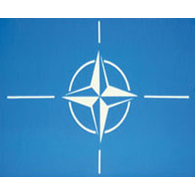Kazakhstan on Wednesday formally agreed to let NATO send supplies through its territory to the international force in Afghanistan, as the alliance's top generals met in Brussels to discuss how to defeat the Taliban-led insurgency, DPA reported.
NATO is set to send almost 40,000 extra soldiers to the UN-mandated International Security Assistance Force (ISAF) in Afghanistan as part of a renewed effort to win the war there, but it needs to find new ways to supply them, as conflicts in Pakistan threaten the main route into the country.
"I have today signed, with the foreign minister of Kazakhstan, an agreement that will allow the transit through Kazakhstan of supplies for NATO and partner forces. I thank the Kazakh government," NATO Secretary General Anders Fogh Rasmussen said in a statement.
"This allows supplies for our forces to start moving from Europe to Afghanistan, beginning in the coming days, complementing the very important transit route through Pakistan," Rasmussen said.
The move comes on top of an agreement with Russia which allows non-lethal NATO supplies to cross Russian territory.
Separately, the top military commanders from the 43 countries which contribute to ISAF met in Brussels to discuss how to use their massive troop reinforcements to defeat the Taliban-led insurgency.
The reinforcements are part of a new strategy proposed in August by ISAF's commander, General Stanley A McChrystal.
The strategy calls for ISAF forces to put more effort into defending Afghan civilians, and for reinforced efforts to train the country's security forces, improve its economy, fight corruption and encourage lower-ranking militants to return to civilian life.
On Tuesday, Germany announced that it would send 500 more soldiers to ISAF, with 350 extra held in reserve, and that those soldiers would be used for training the Afghan army and police.
"This decision, along with Romania's recent announcement of 600 more soldiers ... will substantially strengthen the NATO-led mission. These troops ... are a clear demonstration of NATO's solidarity and determination to accomplish its mission," Rasmussen said.
Wednesday's meeting brought together McChrystal with the head of Pakistan's army, General Ashfaq Parvez Kayani, and the army chiefs of staff of the 43 nations fighting in ISAF.
The mission currently counts some 84,000 troops from all 28 NATO nations and 15 allied states such as Australia, Azerbaijan and Georgia. South Korea is expected to join later in the year.
On Thursday, the foreign ministers and top diplomats of 65 countries, including NATO's members, are to meet in London to discuss how they can help strengthen the Afghan government and armed forces so that they can defeat the insurgents and stabilize the country.






